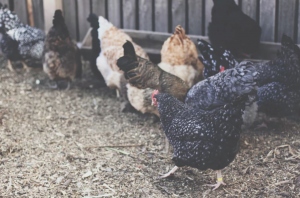
Although you may know that dogs, cats and others make exceptional therapy animals, chickens may also be incorporated into therapy programs. While too many people don’t understand the important role animals play in life, you have the ability to see their true worth by having empathy towards all creatures. Chickens are proving to be highly useful in therapy for several reasons.
Learning Life Skills
Developing life skills is essential to living a normal, productive life in the real world. These vital skills can be learned in chicken therapy programs. While children who’ve been diagnosed with Autism and Asberger’s usually have a difficult time learning, interacting with chickens is extremely beneficial. Responsibility, independence and self-help are a few life skills you can learn. Taking care of chickens by providing food and water, fresh bedding and keeping the coop clean are useful for learning survival skills. Creative therapy activities may enhance your experience with art, or jazz or classical music.
Being Empathetic
Another skill you can learn is empathy. Many claim watching chickens aids in understanding people and increases happiness. Observing chickens may also help in understanding yourself better. One humanlike quality you may see the birds display is curiosity. Noticing the similarities and connections like this between humans and animals benefits society by helping those with learning disabilities. You can find chicken feed online or possibly even in your area. You can buy ready built chicken coops or go through your local classifieds to rehome one for less cost.
Bonding and Socialization
Children and adults who spend enough time with chickens tend to form a friendship bond. People who are struggling through tough times may benefit from joining a chicken therapy program. Chicken to Love is a therapy program created by a ten-year-old girl who has Asberger’s named Summer Farrelly. She feels that the animals help with socialization issues. The youth also bonded with a blind chicken. She relates the way chickens interact together (by making chirping sounds and using body language) to people on a playground. In her eyes, chickens have the potential to change the world for the better. The birds have helped her understand how her own unique ability of empathy makes her special and that Asberger’s is empowering, not debilitating.
Everyone should make an honest effort to understand why animals matter. Chickens have also proven to be more than just a meal on a plate. You can think about how the therapeutic benefits of animals, such as chickens, is a miracle worker for people in need.

